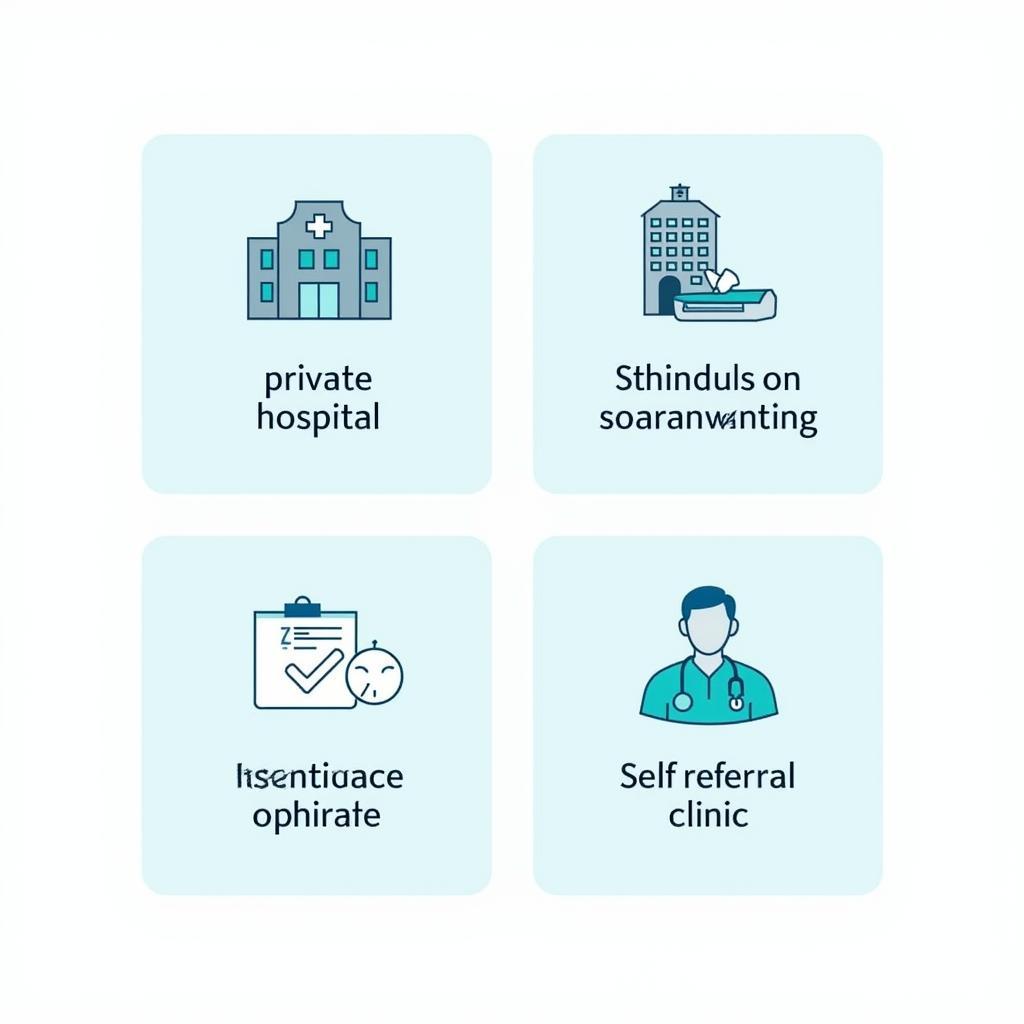What are Secondary Care Services NHS?
Secondary care services are the specialist medical services you receive when you’re referred by a GP or another healthcare professional. These services are provided by hospitals and specialist clinics within the NHS. Let’s explore the different types of secondary care services, how to access them, and their importance in the broader healthcare system.
Understanding the NHS Structure: Primary, Secondary, and Tertiary Care
To fully grasp the significance of secondary care, it’s crucial to understand the three-tiered structure of the NHS:
- Primary Care: This forms the first point of contact with the NHS. It includes services provided by GPs, nurses, pharmacists, and dentists.
- Secondary Care: This level involves specialist care requiring referral from a primary care physician. It encompasses a wide range of services, from hospital consultations and surgeries to mental health support and specialized therapies.
- Tertiary Care: This highly specialized level of care is typically provided in specialized hospitals equipped with advanced technology and expertise. It includes complex procedures like organ transplants, neurosurgery, and advanced cancer treatments.
Common Examples of Secondary Care Services
Secondary care services encompass a diverse range of medical specialities. Some common examples include:
- Accident and Emergency (A&E): For immediate medical attention in life-threatening situations.
- Hospital Consultations: Appointments with specialists like cardiologists, oncologists, or dermatologists.
- Surgical Procedures: Ranging from minor surgeries to complex operations requiring hospitalisation.
- Mental Health Services: Including therapy, counselling, and inpatient care for mental health conditions.
- Maternity Services: Antenatal care, childbirth support, and postnatal care for mothers and newborns.
- Chronic Disease Management: Specialized care for conditions like diabetes, asthma, and heart disease.
How to Access Secondary Care Services
Accessing secondary care typically involves a referral from your GP. Here’s a step-by-step guide:
- Contact your GP: Discuss your symptoms and health concerns with your GP.
- Referral Process: If necessary, your GP will assess your situation and refer you to a specialist or hospital department.
- Waiting Times: The NHS operates based on clinical need, and waiting times can vary depending on the urgency and type of service required.
- Appointment Confirmation: You’ll receive an appointment letter with details about your consultation or treatment.
 Referrals and appointments process in the NHS
Referrals and appointments process in the NHS
Importance of Secondary Care Services within the NHS
Secondary care plays a pivotal role in ensuring a comprehensive and effective healthcare system.
- Specialized Expertise: Provides access to specialized medical knowledge and expertise not available in primary care settings.
- Advanced Treatments: Offers a wider range of treatments and interventions, including complex surgeries and specialized therapies.
- Continuity of Care: Ensures a seamless transition from primary care, allowing patients to receive more comprehensive care for their specific needs.
- Improved Health Outcomes: By addressing health issues promptly and effectively, secondary care contributes to better overall health outcomes for patients.
Quicker Alternatives for Certain Secondary Care Needs
While the NHS remains committed to providing universal healthcare, long waiting times for certain procedures have led to the rise of alternative pathways.
- Private Healthcare: Opting for private healthcare can offer quicker access to specialist consultations and treatments, albeit at a cost.
- Self-Referral: Some services, such as physiotherapy and sexual health clinics, allow patients to self-refer without a GP referral.
 Alternative healthcare options
Alternative healthcare options
Conclusion
Secondary care services form a crucial part of the NHS, bridging the gap between primary care and highly specialized tertiary care. By providing access to specialized expertise, advanced treatments, and continuous care, these services play a vital role in maintaining and improving the health and well-being of the population.

